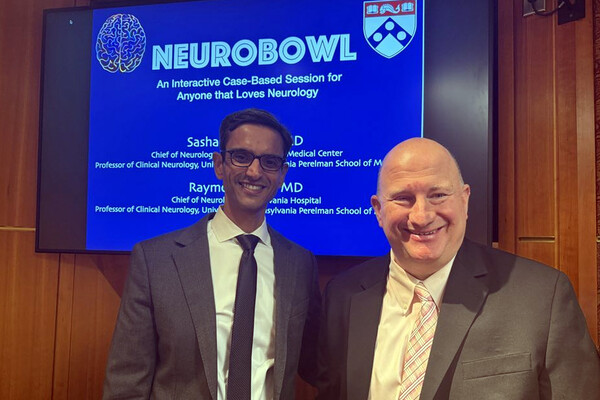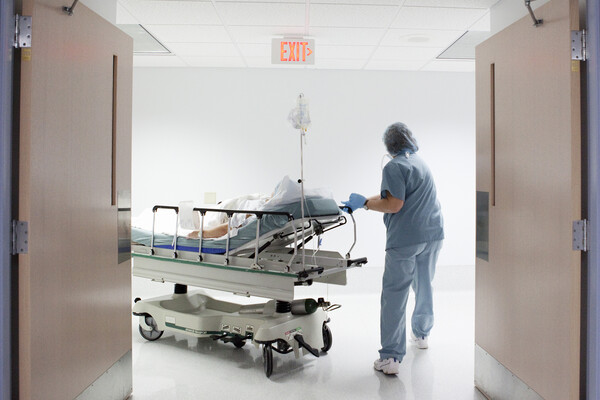
Image: Courtesy of NASA’s Jesse Allen, Earth Observatory

Image: Courtesy of NASA’s Jesse Allen, Earth Observatory

Sashank Prasad (left), chief of Neurology at Penn Presbyterian Medical Center, and Raymond Price, chief of Neurology at Pennsylvania Hospital.
(Image: Courtesy of Penn Medicine News)
The lowest-income Americans would end up paying more under a proposed tax bill, according to an analysis from the Penn Wharton Budget Model.

Image: Dana Neely via Getty Images

Lillian Miller (left) graduated as a chemistry and environmental scieces double major in May. This summer, she returns to begin her graduate training in Irina Marinov’s (right), where researchers use big data and computational techniques to make better climate models.
nocred
Kent Smetters of the Wharton School says that protective zoning privileges existing homeowners at the expense of new development, which leads to increased property taxes in some higher-income states.
A study co-authored by Eric Roberts of the Perelman School of Medicine finds that patients who lose access to Medicaid and Medicare coverage fill fewer prescriptions on average and are more likely to die, depending on their conditions and drug costs.
Lynn Wu of the Wharton School says that machine-generated data produces worse content than human data when it’s fed into an AI algorithm, causing the output of generative AI to gradually degrade when it relies solely on itself.
Susan Ellenberg of the Perelman School of Medicine wants to avoid a situation where people who don’t fall into a “recommended” category couldn’t get a vaccine if they wanted it.
A study co-authored by Joel M. Gelfand of the Perelman School of Medicine finds that residual inflammation persists among patients with psoriasis despite optimal disease response to biologic therapies, putting them at risk for broader health conditions.